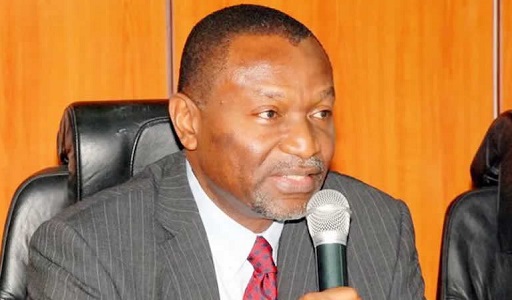Business
2018 BUDGET: FG to incur more debt on loans to fund deficit

Indications have emerged that the Federal Government of Nigeria (FGN) will incur more debt by paying more than it planned to fund the 2018 Budget deficit, even as borrowing cost on external loans is expected rise.
Last week, the Minister of Budget and National Planning, Sen. Udoma Udo Udoma, at the presentation of the details of the 2018 Budget, said the federal government would raise N7.17 trillion to fund the N9.12 trillion budget, leaving an overall budget deficit of N1.95 trillion.
The minister added that the budget deficit would be financed mainly by borrowing N1.64 trillion of which N793 billion would be borrowed domestically while N849 billion would be borrowed from foreign sources.
But, analysts at FSDH Research, in their latest weekly report, expect interest rates and yields in the global financial market to increase further as the normalization of monetary policy in advanced countries continued.
The upward trend of these indices could make countries or corporates that plan to raise money from the international market to pay higher interest rates because of rising yields.
Countries in emerging markets may adjust the yields on their fixed income securities to sustain the interests of investors, both local and foreign, in the instruments.
Read also: TCN receives N565bn to boost power supply to 20,000MW in 4 years
FSDH Research observes an inverse relationship between the movements in yields on FGN Bonds and US Treasury Notes over the last twelve months.
This implies that during period, when the US Treasury Note increased, the FGN bond dropped.
“The strategy of the Debt Management Office (DMO) to issue more of long term debt than short term debt and to increase the proportion of the external debt in the total debt stock, was the major reason for the inverse yield movement.
“We expect the relationship to change as additional rate hikes are announced in the US and the Federal Government of Nigeria (FGN) starts to fund the 2018 budget deficit,” the analysts said.
On June 20, the DMO said the nation’s total public debt increased from N21.73 trillion ($71 billion) in December 2017 to N22.71 trillion ($74.28 billion) at the end of the first quarter of 2018.
RipplesNigeria… without borders, without fears
Click here to join the Ripples Nigeria WhatsApp group for latest updates.
Join the conversation
Support Ripples Nigeria, hold up solutions journalism
Balanced, fearless journalism driven by data comes at huge financial costs.
As a media platform, we hold leadership accountable and will not trade the right to press freedom and free speech for a piece of cake.
If you like what we do, and are ready to uphold solutions journalism, kindly donate to the Ripples Nigeria cause.
Your support would help to ensure that citizens and institutions continue to have free access to credible and reliable information for societal development.






















